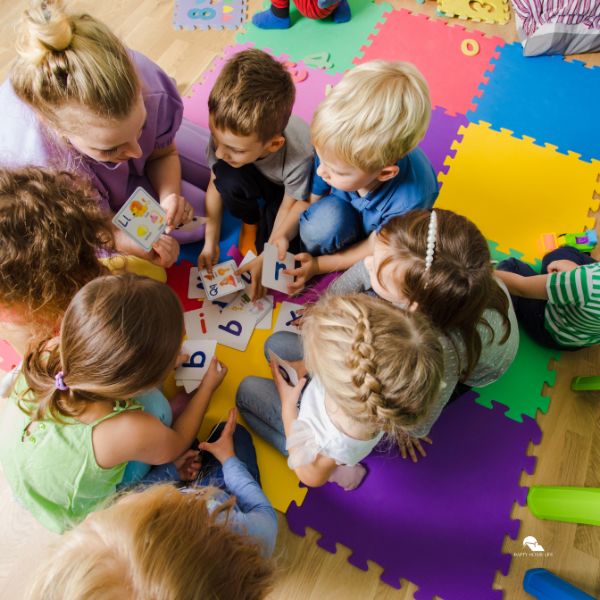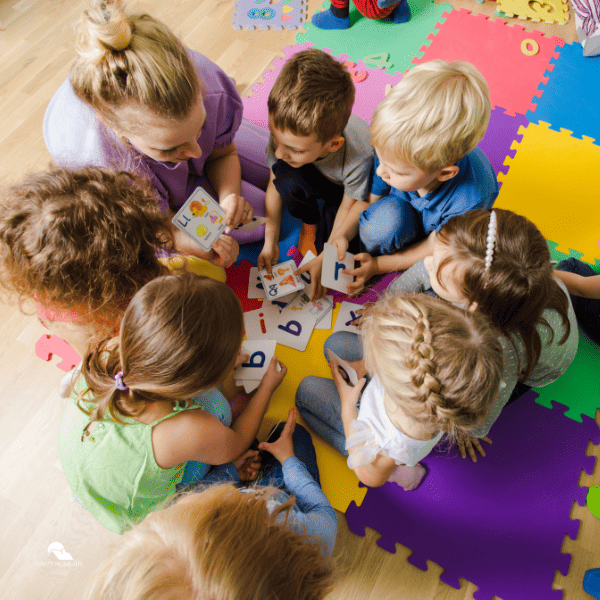Beginning school can be an intimidating transition for parents and little ones alike, yet the foundation for an exceptional education experience can be established before entering any classroom. Here we explore eight effective strategies to help your child gain confidence, develop essential skills, and nurture a love of learning, all before beginning their educational journey.

Foster a Love of Reading
Reading can be the cornerstone of education for children and can foster an early enthusiasm for learning. To promote reading as part of their journey to academic success, introduce books about animals, adventures or fantasy worlds which meet your child’s interests and spread that enthusiasm further. Reading together daily can create an unforgettable bonding experience and deepen their language learning.
Visit your local library and let them select books they find engaging, this gives them ownership over their reading journey. Discuss the stories and characters to facilitate comprehension and critical thinking, making reading an engaging activity by adding storytelling sessions with animated voices or acting out scenes. Early reading exposure not only strengthens vocabulary and language skills, but also ignites creativity and curiosity. Fostering this love for reading early sets the stage for academic success as well as developing an enjoyable relationship between knowledge and wisdom throughout their lifetime.
Cultivate Curiosity Through Questions
Promoting curiosity among children is vital to their development as independent thinkers. To foster such curiosity in kids, one way that you can cultivate it through questions. Parents can encourage their child’s natural curiosity by asking open-ended questions that demand more than simple yes or no responses. Try asking them questions like, “What would happen if the character made different choices?” to encourage critical thinking and express their ideas.
This approach helps foster creative problem-solving skills among children. As children are learning, when they pose questions it’s important that parents interact with their inquiries in an open and genuine manner, getting answers together rather than providing quick responses. Doing this not only validates their thoughts but also models problem-solving techniques. By creating a safe space for questioning parents can foster an environment in which curiosity flourishes, sparking lifelong desire to learn and explore the world.
Develop Social Skills
Enhancing children’s social skills is vital for their overall development and future success in interpersonal relationships. One effective strategy to cultivate these vital traits is through cooperative play activities. Children will learn teamwork, sharing and taking turns through this type of play experience.
Engaging in group activities such as team sports or collaborative art projects allows children the chance to interact, negotiate and resolve conflict on their own. Encouragement of role-playing scenarios can strengthen empathy and understanding as students put themselves into various characters’ shoes and navigate various social situations. Parents can serve as role models of positive social behavior by modeling effective communication, active listening and respectful interactions with children. Through providing guidance in rich social environments and building meaningful relationships for their kids throughout their lives.

Encourage Independence
Fostering children’s independence is key to their development as it allows them to become confident and capable individuals. One effective strategy to foster independence among children is allowing them to make age-appropriate choices, such as choosing their outfits, planning meals or picking weekend activities. Allowing this form of autonomy enables children to hone decision making abilities while understanding the consequences of their choices.
Parents can encourage independence by assigning simple household tasks, like picking up toys or helping prepare meals. Such duties foster an atmosphere of accomplishment and self-reliance for their child. Parents must also create an environment in which children feel free to try new activities or skills without fear of failure, encouraging their children to take risks and learn from mistakes as this helps build resilience and adaptability that will serve them throughout their lives.
Establish a Routine
A consistent routine can play an integral part in children’s development by providing them with an element of security and stability in their daily lives. Routines help children anticipate what awaits them, which reduces anxiety while simultaneously increasing wellbeing. Parents can implement structured schedules for meals, homework, playtime and bedtime that include time set aside for each activity, helping their children understand the value of time management and responsibility.
Activities, such as dinner together or story time, can help strengthen familial bonds while opening up communication and connection opportunities between family members. Allowing for flexibility within routine encourages adaptability, teaching children how to navigate changes positively. A well-established routine not only supports children emotionally but also equips them with essential life skills that they will use throughout their development.
Explore Educational Activities
Engaging children in educational activities can significantly expand their cognitive capacities while making learning fun and enjoyable. One effective approach is incorporating learning through play, using games which encourage problem-solving, critical thinking and creativity. Scavenger hunts provide children with opportunities to explore their environment while developing observational skills. Projects such as building models or conducting simple science experiments allow children to apply concepts they learn directly to real-life situations, providing an enhanced understanding of various subjects.
Parents can help promote literacy by organizing story time sessions or encouraging children to write their own tales. There are even activities designed to help children write lower and upper case letters. Visits to libraries or museums can provide enriching experiences, opening children up to new ideas and cultures. Technology also plays an integral role, with numerous educational apps and online resources designed to make learning engaging and interactive. By diversifying educational activities, parents can help foster a lifetime love for learning in their children.

Encourage Physical Activity
Promoting physical activity for the overall health and well-being of children is integral. Exercise not only aids weight management but can also boost mood and energy levels. Parents can encourage physical activity among their children by offering engaging sports such as soccer, basketball or swimming that cater to each child’s interests and abilities.
Establishing a regular family outing such as bike rides or nature walks can foster children’s love of movement and the outdoors, while enrolling them in organized sports teams or classes can foster teamwork and social skills development. By making physical activity a daily part of life, children can develop healthy habits that promote both their physical and mental development. Furthermore, restricting screen time while encouraging active play among friends helps children experience the joys of active recreation.
Establish a Strong Support System
Finally, surround your child with a supportive group of family and friends. Encourage communication about their feelings around starting school, providing comfort whenever they express any worry, and teaching them it’s normal to feel anxious can go a long way towards building resilience and confidence.
Conclusion
Preparing your child for school encompasses far more than academics, it involves nurturing emotional, social and physical skills they will use throughout life. By encouraging a love of learning and encouraging independence in a supportive environment, you can give them an advantage that will serve them throughout their academic careers and life beyond. Remember: the foundation you lay now will give them confidence to tackle challenges head on while welcoming new opportunities with enthusiasm.







